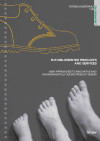Suchergebnisse
TRIGOS - CSR pays!
The project analysed selected TRIGOS projects and organisations and further developed assessment approaches for sustainable management accounting and corporate social responsibility. TRIGOS is an award scheme for organisations who combine economic performance with social and environmental responsibility.
Berichte aus Energie- und Umweltforschung 24/2003Sektorvision

Leitfaden zur Entwicklung nachhaltigerUnternehmensbilder und -strategien
Mehrsprachig
Sustainability Skills Online II
Evaluation and disseminaton of the field-tested, modular eLearning tool for sustainable business planning and successful founding.
Sustainability Skills Online II
Evaluierung und Verbreitung des erprobten, modular aufgebauten eLearning Tools zur nachhaltigkeitsorientierten Unternehmensplanung und erfolgreichen Gründung.
TRIGOS - CSR rechnet sich!
Kern des Projektes war die Weiterentwicklung von Bewertungsansätzen des nachhaltigen Rechnungswesens durch die Bewertung ausgewählter TRIGOS-Projekte und Betriebe. TRIGOS ist eine Auszeichnung für Unternehmen mit Verantwortung, die wirtschaftlichen Erfolg, aber auch soziale und ökologischen Nachhaltigkeit anstreben.
PEB - Plus-Energy-Office
An integrated technical energy plus office concept without additional building costs demonstrates the feasibility of such projects instancing a concrete office project with 50.000 m² floor area in Vienna with economical cost consideration.
Sustainable Business Planner
Further development of the established management concept business plan to the Sustainable Business Plan. Production, testing and dissemination of the holistic user-oriented IT Tool "Sustainable Business Planner" in the context of an Austrian start-up initiative.
Werteinduzierte Innovationen
Analyse sowie Empfehlungen zur Einführung unkonventioneller Instrumente der Politikgestaltung zur Förderung nachhaltiger Innovationen Inhalt des vorliegenden Projekts ist, den gesamtgesellschaftlichen Wandlungs- bzw. Transitions-Prozess in Richtung "echter" Nachhaltigkeit in Österreich durch die Erarbeitung und Identifizierung politischer Instrumente und Impulse, sowie die Entwicklung eines unterstützenden gesellschaftlichen Koordinations- und Abstimmungsprozesses, zu konzipieren.
"IÖB-Tool" Gebäude und erneuerbare Energietechnologien
Bewertungsinstrument für die innovationsfördernde öffentliche Beschaffung in den Bereichen Gebäude und erneuerbare Energietechnologien.
Energetic building refurbishment in protection zones

Standardized solutions as a help and guideline for building-owners, authorities and companies
PH Office: Standard für energieeffiziente Bürobauten
Passivhäuser und energetisch hocheffiziente Bauweisen finden verstärkt auch im Bereich von Büro- und Dienstleistungsgebäuden ihre Anwendung. Gegenüber Wohnbauten ist die Standardisierung in form der Definition von konkreten Energiestandards für diese Gebäudekategorie aber noch nicht abgeschlossen. PH Office bringt Definitionen ein und erstellt einen Vorschlag für eine standardisierte Berechnungsmethode.
PH Office - Criterions for energy-efficient office buildings
The passive house standard and energy-efficient building technologies are getting increasingly important for office buildings, too. However, standardisation is not completed on the same level as known from the residential building sector. The project at hand brings in definitions and makes a suggestion on a standardised calculation method for office buildings in passive house quality.
Berichte aus Energie- und Umweltforschung 16/1996 Zielerreichungsbeiträge von Cleaner Production-Projekten

Eine volkswirtschaftliche Analyse am Beispiel der österreichischen PREPARE-Programmes
Zusatzqualifikation "Sustainability Skills" für GründerInnen
Ein modulares, internet-gestütztes "Nachhaltig Wirtschaften"-Qualifizierungsprogramm, das UnternehmensgründerInnen dabei unterstützt, die Prinzipien einer nachhaltigen Entwicklung zu verstehen, diese in ihre Unternehmensplanung mit einzubeziehen und sie erfolgreich in einem wirtschaftlichen Kontext anzuwenden.
"1000 Passivehouses in Austria" - Passive house object databank

The first joint project of the four IG passive house organisations on behalf of the programme line "Building of Tomorrow" - an initiative of the Federal Ministry for Transport, Innovation and Technology - for the purpose of setting up a detailed network documentation of 80% of all passive houses in Austria.
Architekturhistorisch differenzierte, energetische Sanierung

Bauten der Nachkriegsmoderne unter Denkmalschutz. Vergleichende Analyse energetischer Sanierung Fallbeispiel Freiluftschule Franklinstraße, Wien 21
Berichte aus Energie- und Umweltforschung 8/2001 Evaluation der Cleaner Production Programme in Österreich

Gesamtschau der durch öffentliche Fördermittel teilfinanzierten Umweltprogramme und der darin eingebundenen Betriebe
Future-Oriented Products And Services

New Approaches to innovative and environmentally sound produc design
Forschungsforum
1/1998
Herausgeber: BMVIT
Englisch, 6 Seiten
Downloads zur Publikation
Berichte aus Energie- und Umweltforschung 6a/2001 Umweltrechnungswesen

Grundsätze und Vorgehensweise
